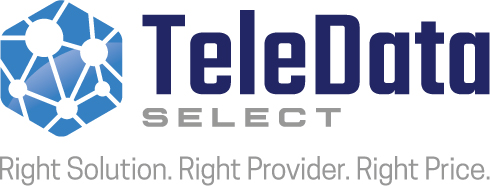Artificial Intelligence (AI) is no longer just a futuristic concept or a luxury for big tech companies. Today, businesses of all sizes can harness AI as a practical tool to reduce costs, boost efficiency, and enhance customer experience. But to truly unlock AI’s potential, companies must first identify their specific pain points and then carefully align AI solutions to achieve clear, measurable business outcomes.
Below, we explore key areas where AI can make a significant impact and offer strategic considerations to help you make the most of this powerful technology.
1. Managing High Call Volume & Enhancing Customer Service
The Problem:
Customer service teams often face overwhelming call volumes, which slow response times, increase customer frustration, and cause agent burnout.
How AI Helps:
-
AI-powered virtual agents or chatbots can handle routine inquiries such as billing questions, appointment scheduling, or password resets—freeing human agents to focus on complex issues.
-
Intelligent call routing analyzes customer intent and directs calls to the most suitable agent or department, improving first-call resolution rates.
-
Voice analytics monitor live or recorded calls to identify trends in high call volumes and suggest operational improvements.
What to Consider:
-
Integrate AI chatbots with your CRM and knowledge base to enable smooth escalation to human agents when needed.
-
Ensure transitions between AI and live agents are seamless and timely to maintain a positive customer experience.
2. Improving Agent Performance
The Problem:
Training and performance management for sales and support teams can be inconsistent and slow to adapt to evolving needs.
How AI Helps:
-
Real-time coaching tools use speech and sentiment analysis to provide agents with immediate feedback during customer interactions.
-
AI-driven dashboards highlight coaching opportunities, identify skill gaps, and flag compliance issues.
-
Automated quality assurance reviews 100% of calls, ensuring no interaction goes unchecked.
What to Consider:
-
Use AI to augment human coaching, not replace it. The human element remains essential.
-
Balance key performance indicators like call speed and resolution time with customer satisfaction scores (CSAT, NPS).
3. Boosting Online Conversions
The Problem:
Websites and landing pages often lose potential customers due to friction points such as slow responses, irrelevant content, or poor targeting.
How AI Helps:
-
Proactive AI chatbots engage visitors in real time, answering questions and guiding them through the buying process.
-
Recommendation engines analyze user behavior to suggest relevant products or services, similar to Amazon or Netflix.
-
Personalized content and offers adapt dynamically based on browsing history, referral source, or demographics.
What to Consider:
-
Track and test AI-driven interactions against traditional methods using A/B testing to measure effectiveness.
-
Prioritize fast page load times and mobile responsiveness alongside AI-powered personalization.
4. Retaining More Customers (Reducing Churn)
The Problem:
Customer churn can be costly and is often preventable if warning signs are detected early.
How AI Helps:
-
Predictive analytics identify behavior changes or sentiment signals indicating a customer might leave.
-
AI-enhanced surveys analyze open-ended responses for emotional cues and common themes, triggering timely outreach.
-
Dynamic loyalty programs and retention campaigns adjust based on customer risk scores and preferences.
What to Consider:
-
Don’t rely solely on automation—combine AI insights with human empathy and follow-up.
-
Create workflows that enable rapid response to AI-generated churn alerts.
5. Shortening Resolution Time
The Problem:
Long resolution times hurt customer satisfaction and operational efficiency.
How AI Helps:
-
Knowledge management AI helps agents quickly find answers by indexing internal documents, tickets, and manuals.
-
Case triaging AI categorizes and routes support tickets accurately and instantly.
-
AI-assisted diagnostics analyze error logs, user data, or device info to suggest probable causes and fixes in real time.
What to Consider:
-
Ensure your AI tools are fed with high-quality, regularly updated data.
-
Use agent feedback loops to continuously improve AI recommendations.
Implementation Tips for Businesses New to AI
-
Start Small, Then Scale: Launch a pilot in one area—like chatbot-driven call deflection—and grow from there based on measured ROI.
-
Choose the Right Tools: Select AI solutions that integrate smoothly with your existing tech stack, whether CRM, helpdesk, or e-commerce platforms.
-
Focus on the Problem, Not the Hype: Clearly define the business challenge first, then seek AI tools that directly address it—rather than chasing buzzwords.
-
Invest in Training: Equip your team to understand, trust, and effectively use AI insights.
-
Keep Human Oversight: AI should assist—not replace—human intuition, empathy, and decision-making.
Final Thoughts
AI offers tremendous opportunities for businesses to improve customer service, boost sales, and streamline operations. The key is to approach AI adoption thoughtfully—start with real problems, choose appropriate tools, and blend AI’s strengths with human expertise. With this balanced approach, AI can become a powerful partner in driving sustainable business success.
 John Hagan, founder and CEO of TeleData Select, leads a managed IT and data company based in Atlanta, GA, serving clients across the US and internationally. The company uses a hybrid collaboration team model that leverages a network of technology providers to help businesses find the right IT solutions at the best prices. TeleData Select offers complimentary telecom audits and assistance with managed IT projects to help businesses stay ahead in the evolving tech landscape.
John Hagan, founder and CEO of TeleData Select, leads a managed IT and data company based in Atlanta, GA, serving clients across the US and internationally. The company uses a hybrid collaboration team model that leverages a network of technology providers to help businesses find the right IT solutions at the best prices. TeleData Select offers complimentary telecom audits and assistance with managed IT projects to help businesses stay ahead in the evolving tech landscape.
Feel free to call us direct at 404-439-4480 or email today to have a conversation or click on this link and book some time on our calendar today.





0 Comments